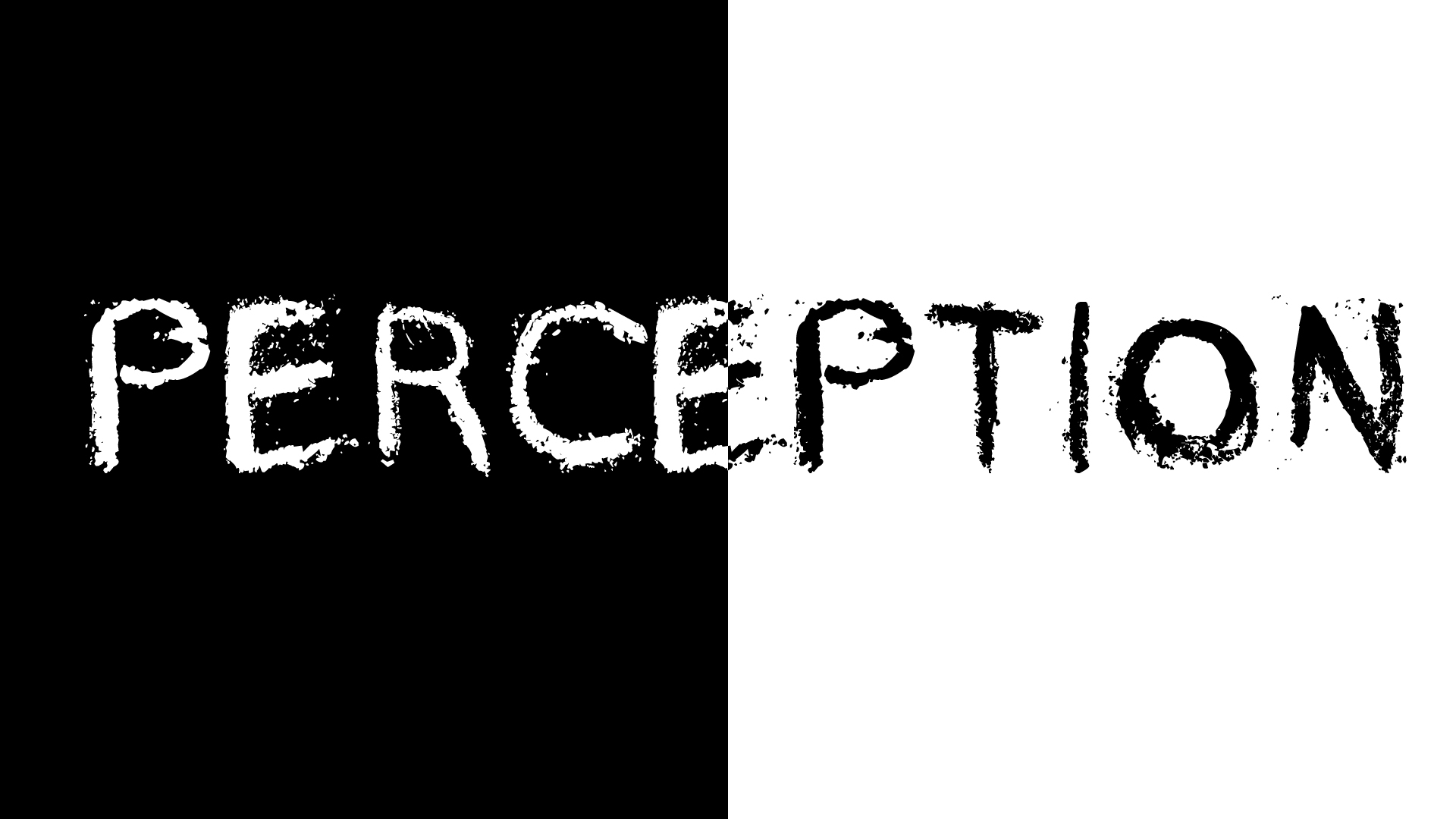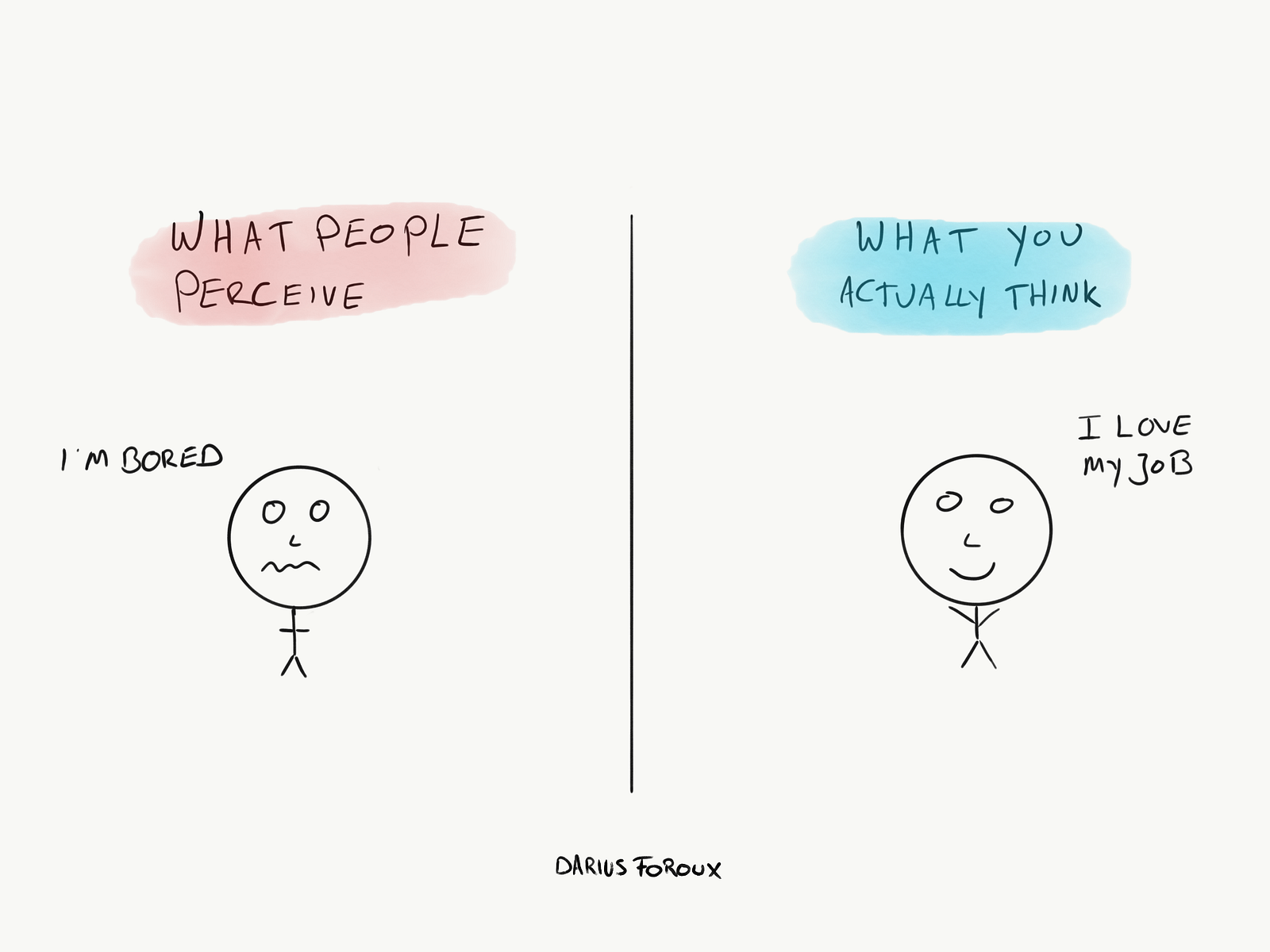PERCEPTION
 Perception (from the Latin perceptio) is the organization, identification, and interpretation of sensory information in order to represent and understand the presented information, or the environment.
All perception involves signals that go through the nervous system, which in turn result from physical or chemical stimulation of the sensory system. For example, vision involves light striking the retina of the eye, the smell is mediated by odor molecules, and hearing involves pressure waves.
Do you ever feel misunderstood by others? Maybe you feel that people at work don’t get you. Or that your friends are not on the same page.
Maybe others truly don’t get you. But that’s not because of them, it’s most likely because of your own behavior. I’ll tell you why.
Perception (from the Latin perceptio) is the organization, identification, and interpretation of sensory information in order to represent and understand the presented information, or the environment.
All perception involves signals that go through the nervous system, which in turn result from physical or chemical stimulation of the sensory system. For example, vision involves light striking the retina of the eye, the smell is mediated by odor molecules, and hearing involves pressure waves.
Do you ever feel misunderstood by others? Maybe you feel that people at work don’t get you. Or that your friends are not on the same page.
Maybe others truly don’t get you. But that’s not because of them, it’s most likely because of your own behavior. I’ll tell you why.

TYPES OF PERCEPTION
Clairvoyance
Clairvoyance is the capability to acquire information about a particular object, scenario, physical event or location using extrasensory means. The term is a combination of two French words "Clair" which means "clear" and "voyant" which means "seeing". Clairvoyants are people who allegedly have this ability.
For over 130 years, researchers had tried to conduct scientific studies on clairvoyance. One study revealed a 32% success rate versus the 25% chance rate of self-proclaimed clairvoyants being able to transmit one of four given images to "receivers" who were placed in another room, deprived of any related sensation. However, succeeding studies failed to replicate this finding, which shows that the hypothesis has poor validity. Several self-proclaimed clairvoyants include Sylvia Browne, John Edwards, and Rudolf Steiner.
Psychokinesis
Publisher Henry Holt created the term "psychokinesis" to describe the direct effect of the mind on a physical object or scene without the application of any physical energy. The term comes from the two Greek words "psyche" (breath, or mind, soul, or heart), and "kinesis" (movement or motion). A related purported ability is a telekinesis, which literally means "distant-movement". Many references use the terms psychokinesis and telekinesis interchangeably.
Precognition
Another form of ESP, precognition refers to the ability to achieve and perceive information about locations, scenarios, and events before they actually occur. The term comes from the two Latin words "pre" (prior to) and "cognition" (getting to know). Scientific research on precognition revealed non-existence of this phenomenon.
Telepathy
Telepathy is the purported ability to perform direct communication between two or more minds without the use of speech, body language, writings, or any other extrapersonal means. Out of the four types of extrasensory perception, telepathy is the most researched and popularized by the media and related industries.
John Arthur Hill, a physics researcher, summarized the current research on telepathy by writing," No physical theory of telepathy has been worked out — there are no "brain-waves" known, and no receiving stations yet discovered inside our skulls." Popular self-professed telepaths include Alice Bailey and Vinko Rajic.
At last, I would like to say that it does not happen all the time that what you see or what you state is always right maybe the other person is also right in his or her way of thinking or speaking.


Comments
Post a Comment